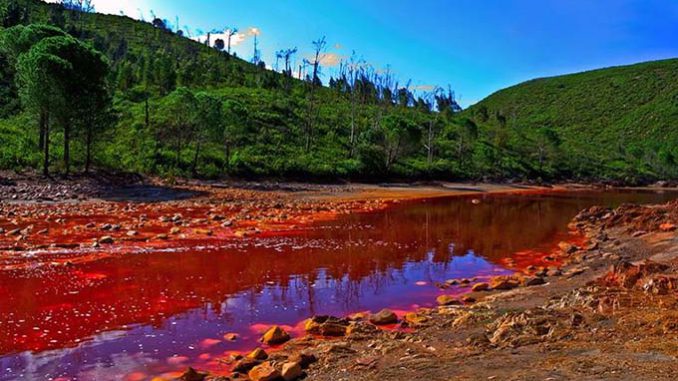
The Rio Tinto is a river in southwestern Spain, originating in the Andalusian mountains. Since ancient times, sections along the river have been used for copper, silver, gold and other minerals. As a result, many mines and quarries of fanciful shape were formed, and the river’s waters became dark red and saturated with acid and heavy metals. More than 5000 years of mining contributed to the pollution of the river, making Tinto an extremely dangerous place. Production peaked in 1930, after which production decreased. Copper was no longer mined here in 1986 and silver and gold in 1996, but huge mines, quarries and excavations remained and the metals continue to flow into the river waters. Many iron and sulphur oxidising bacteria were born in the river and it was their activity that caused the water to become so intensely coloured. Rio Tinto is home to thousands of other amazing bacteria and organisms. The river has aroused great scientific interest because of the activity of aerobic bacteria that multiply rapidly in the water. It is these life forms that are considered to be the probable cause of the high acid content. The bacteria feed on iron and minerals, which are washed out of mines and contained in large quantities on the surface rocks along the river bed. This unusual condition of the river has led to extensive research by astrobiologists. In their opinion, rivers of the same type can also be found in other solar systems, for example in the depths of Mars. For example, the moon of Jupiter, Europe, probably has an ocean of oxidized water hidden under its ice surface and containing the same bacteria as Rio Tinto in Andalusia. A red lake formed at the bottom of one of the quarries, partly based on research near the Rio Tinto River, two NASA scientists said in February 2005 that they had found strong evidence of life on Mars. However, NASA officials denied the claims made by their subordinates, and one of the scientists later retracted his claim.


Leave a Reply